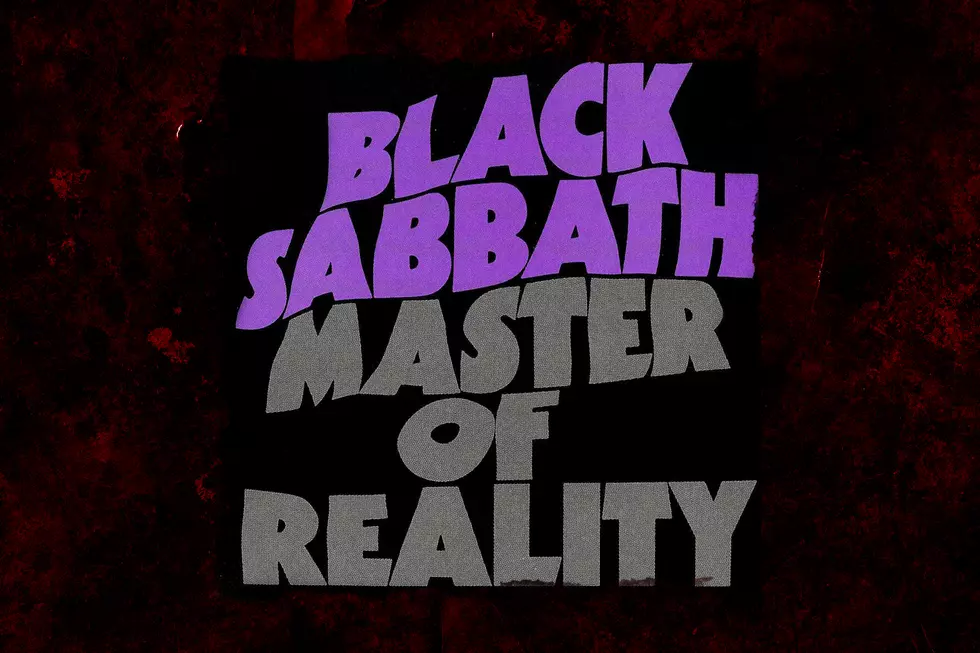
52 Years Ago: Black Sabbath Release ‘Master of Reality’
It was the cough that inspired legions. While Black Sabbath were in Island Studios in London working on their third album, Ozzy Osbourne handed guitarist Tony Iommi marijuana joint. Since Iommi was recording an acoustic passage he was perched over a microphone and the potent cannabis made him cough. Producer Rodger Bain looped the recording of the cough, added delay and used it as the intro to “Sweet Leaf,” a song about the inspirational qualities of weed and the cornerstone of Master of Reality, which was released on July 21, 1971.
Black Sabbath, "Sweet Leaf"
Along with “Sweet Leaf,” other new Sabbath tracks including “After Forever,” “Children of the Grave” and “Into the Void” were equally sludgy and trudging. But it wasn’t just their heaviness that made them appealing. Master of Reality was filled with multifaceted riffs, meandering basslines and nasal, yearning vocals that served as a natural inspiration to early stoner rock groups like Pentagram, Saint Vitus and the Obsessed. Later, Trouble, Candlemass, Monster Magnet and Cathedral would draw from the pungent vibe, and eventually Melvins, Kyuss and Sleep would continue to get a buzz from Master’s powerful punch.
To make his guitar easier to play with the severed tips of his left fingers, Iommi downtuned his guitar three-semi-tones and Geezer Butler tuned down to match. The side effect was a deeper, darker tone that sounded more sinister than Sabbath’s earlier work when distorted and played through amplification. Master of Reality was the first album Black Sabbath spent more than a week recording. The band’s debut was recorded in a single 12-hour day. The follow-up, Paranoid, took less six days. For Master of Reality, the band had a luxurious three months.
Having such a long time in the studio should have allowed Black Sabbath the time they needed to experiment with different ideas and still create an innovative album at their leisure. But being in the studio so long inspired the band to spend more time experimenting. Then they’d over-analyze their music until they were practically paralyzed. Exploring every musical option probably wasn’t the only creative impediment for Black Sabbath. The mass quantities of weed and alcohol they indulged in probably had as much to do with their paranoia and periodic lack of productivity.
Black Sabbath, "Into the Void"
Drummer Bill Ward had great difficulty nailing the beat for “Into the Void,” and the band tried tracking at several different studios in the hope that a new setting might shake Ward’s jitters. The more he tried, however, the more anxious he became. He’d announce loudly that he couldn’t play the song and his bandmates would have to convince him otherwise before he’d try again. Finally, after dozens of takes, Ward was able to relax enough to flow with the beat.
Osbourne’s greatest obstacle was the song “Solitude.” Since bassist Geezer Butler wrote the lyrics and the song incorporated different tempos, the vocalist couldn’t figure out when to speed up and which words were meant to match up with which notes. “Seeing him try was hilarious,” wrote Iommi in his memoir Iron Man: My Journey through Heaven & Hell with Black Sabbath.
Black Sabbath, "Solitude"
Released shortly after a well-publicized tour, Master of Reality reached No. 8 in the U.S. album chart, immediately going gold due to advance orders. It was Black Sabbath’s last album to debut in the Top 10 until their reunion album 13, which debuted at No. 1 in 2013. In July 2001, Master of Reality was certified double platinum.
Although nobody complained about the length of the album, by today’s standards Master of Reality’s 32-minute running length would be considered a bit concise, especially since two of the songs are instrumentals that clock in at two minutes combined and there were only eight songs on the original pressing. For listeners at the time, however, that was more than enough bludgeoning. And if you were too stoned to flip the record over when it was done and you hadn’t had enough, you were probably ready for bed, anyway.
Black Sabbath, "Children of the Grave"
Loudwire contributor Jon Wiederhorn is the author of Raising Hell: Backstage Tales From the Lives of Metal Legends, co-author of Louder Than Hell: The Definitive Oral History of Metal, as well as the co-author of Scott Ian’s autobiography, I’m the Man: The Story of That Guy From Anthrax, and Al Jourgensen’s autobiography, Ministry: The Lost Gospels According to Al Jourgensen and the Agnostic Front book My Riot! Grit, Guts and Glory.
Black Sabbath Albums Ranked
More From Loudwire









